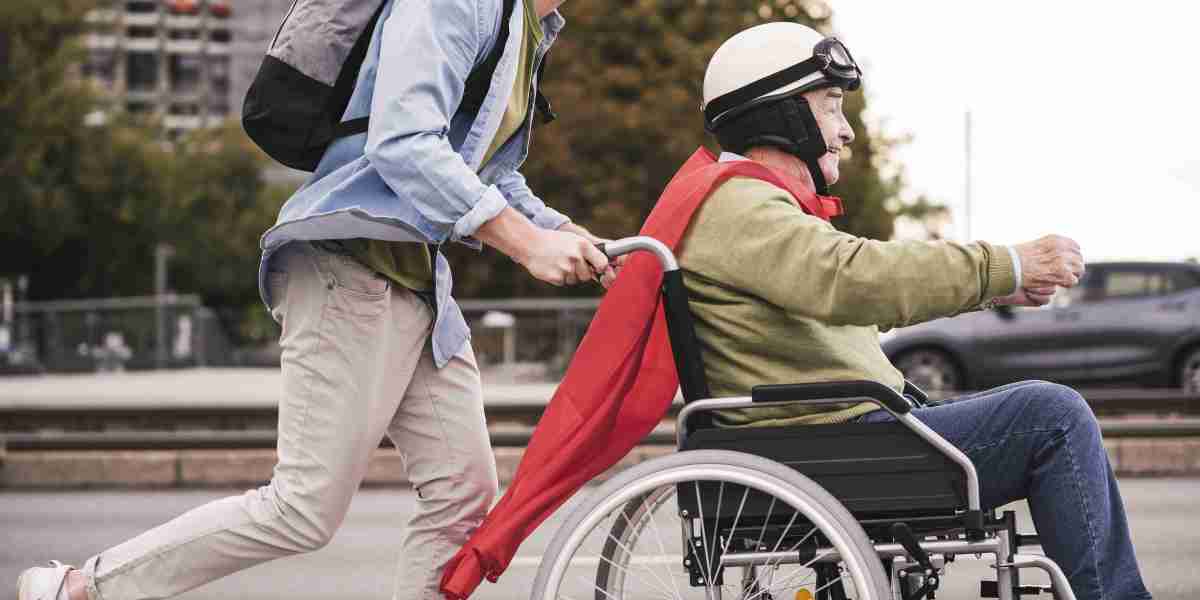Understanding Rollators for the Elderly: A Comprehensive Guide
As our loved ones age, keeping mobility and self-reliance becomes a vital element of their lifestyle. Rollators, a type of mobility aid particularly created for the elderly, play a considerable role in assisting seniors maintain their self-reliance while guaranteeing their safety when walking. This post uses a thorough understanding of rollators, discussing their functions, benefits, types, and essential considerations for choosing the ideal one.
What is a Rollator?
A rollator is a wheeled walker geared up with a frame, handlebars, and wheels that make it possible for smoother and more stable motion for people having problem walking. Unlike traditional walkers, rollators come with four wheels and often consist of a seat, making it much easier for users to take breaks during their walks.
Secret Features of Rollators
Rollators come with several essential functions that offer convenience and safety for elderly users. Here's a table summarizing some crucial features:
| Feature | Description |
|---|---|
| Wheels | Normally have 4 wheels for simple maneuverability |
| Brakes | Hand-operated brakes make it easy to stop the rollator |
| Seat | Many designs consist of a cushioned seat for resting on the go |
| Storage | Under-seat baskets or front bags to bring individual products |
| Height Adjustment | Manages that can be height-adjusted for specific comfort |
| Foldability | Many rollators can be easily folded for transport and storage |
Benefits of Using a Rollator
Rollators are created with the requirements of the elderly in mind and come with many benefits:
- Increased Mobility: Rollators offer stability, allowing seniors to walk more freely without the worry of falling.
- Enhanced Independence: With a rollator, older adults can move around their homes and neighborhoods more easily.
- Padded Seat: The inclusion of a seat allows users to rest whenever they feel fatigued.
- Storage Solutions: Rollators can hold bags or personal belongings, enabling users to transport items without additional effort.
- Safety Features: The brakes make sure that the rollator stays in location when needed, minimizing the threat of accidental slips.
Types of Rollators
Picking the best rollator depends on the individual's particular requirements. Here are several types commonly discovered on the market:
- Standard Rollators: Usually equipped with 4 wheels, brakes, and a seat. Ideal for most users.
- Sturdy Rollators: Designed for bigger and much heavier individuals, these designs often support more weight and supply a larger seat.
- Three-Wheel Rollators: More compact and simpler to steer, perfect for indoor use or tight areas.
- Bariatric Rollators: Specifically developed to support much heavier weights and provide additional stability and convenience.
- Folding Rollators: Lightweight and quickly foldable, perfect for travel or those with restricted storage space.
Elements to Consider When Choosing a Rollator
Picking the best rollator includes considering various essential elements:
- Weight Capacity: Ensure the rollator can support the weight of the user easily.
- Manage Height: The height needs to be adjustable to prevent stress while using the rollator.
- Weight of the Rollator: A lightweight rollator is easier for the user to deal with.
- Storage Options: Look for rollators with adequate storage space for personal items.
- Surface Suitability: Consider whether the user will predominantly use the rollator indoors, outdoors, or on unequal surfaces.
Extra Features to Look For
- Reflective Materials: For enhanced exposure in low-light conditions.
- Comfort Grips: Ergonomic manages to supply comfort during prolonged use.
- Tire Type: Soft tires are much better for indoor use, while tough tires can manage rough outdoor terrains.
Often Asked Questions (FAQs)
1. How do I know if a rollator is ideal for me or my liked one?
Evaluate the individual's mobility issues, their living environment, and their strength. Consulting with a doctor can also provide tailored suggestions.
2. Can rollators be used outdoors?
Yes, many rollators are specifically created for outdoor use and include larger wheels for much better maneuverability on irregular surfaces.

3. How do I keep a rollator?
Regular cleansing of the frame, checking the brakes for functionality, and making sure wheels remain in good condition are vital for upkeep.
4. Is it safe to use a rollator on stairs?
Rollators are not designed for use on stairs. Alternative stair climbing aids or support from caregivers ought to be considered.
5. What is the difference in between a rollator and a walker?
While both are mobility aids, rollators have wheels and are developed for enhanced mobility and stability, whereas walkers need users to lift them as they stroll and generally do not have wheels.
Rollators considerably boost the lifestyle for the elderly by promoting self-reliance and safety in mobility. With different types, functions, and considerations, it is essential for caretakers and household members to choose the suitable rollator for their liked ones. Buying a quality rollator can provide the elderly with the self-confidence to browse their environments, continue enjoying their daily activities, and restore a sense of independence in their lives.







